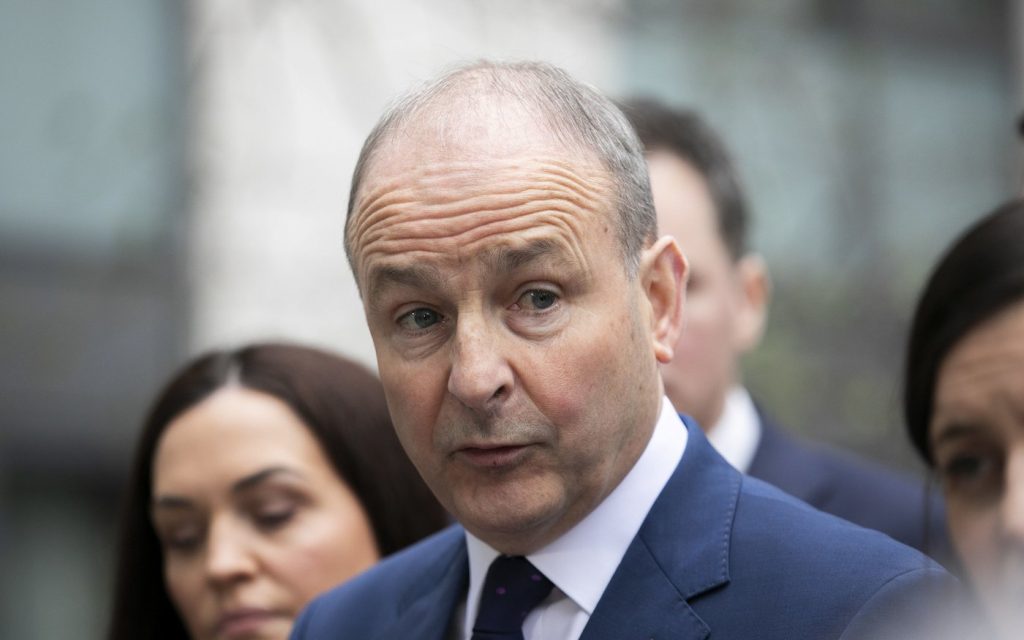DUBLIN (AP) — Veteran politician Micheál Martin is poised to take on the role of Ireland's prime minister for a second time as the Dáil, the lower house of parliament, prepares to formally approve him as the head of a new coalition government on Wednesday. This confirmation follows the elections held on November 29, in which Martin's Fianna Fáil party emerged as the victor with the highest number of seats, although it fell short of securing an outright majority.
After several weeks of negotiations, Martin's party, Fianna Fáil, has forged an alliance with Fine Gael, led by outgoing Taoiseach Simon Harris, and has garnered support from various independent lawmakers. Under the terms of the coalition agreement, Martin, who is 64 years old, will serve as Taoiseach for the first three years, followed by Harris taking over the position for the remainder of the five-year term.
Both Fianna Fáil and Fine Gael members have ratified the coalition deal, and Martin's confirmation in the Dáil is slated for Wednesday. Following this, President Michael D. Higgins will formally appoint him to the position, after which Martin will proceed to assemble his Cabinet.
During Ireland's recent elections, the populace defied a global trend that saw numerous incumbent governments ousted in 2024. Fianna Fáil captured 48 of the 174 legislative seats, while Fine Gael secured 38. The coalition has been established with the backing of the Regional Independent Group, which is set to receive two ministerial roles in the government.
Though Fine Gael and Fianna Fáil generally share similar centrist policies, they are marked by a long-standing rivalry rooted in their historical origins from opposing factions of the Irish civil war in the 1920s. The two parties previously formed a coalition after the 2020 elections resulted in a near stalemate.
The new coalition government explicitly excludes the left-of-center party Sinn Féin, which, despite winning 39 seats, will remain in opposition. Fine Gael and Fianna Fáil have rejected the possibility of working with Sinn Féin due to its historical connections with the Irish Republican Army during the decades-long conflict in Northern Ireland.
The incoming government is faced with significant challenges, particularly in addressing the soaring rates of homelessness, which have been exacerbated by escalating rents and property prices. Additionally, the government needs to manage a growing influx of asylum-seekers, a topic that has sparked considerable public discourse.
The cost of living, especially in relation to the acute housing crisis, was a critical issue during the election campaign. Furthermore, immigration has emerged as a complex and sensitive topic in a nation of 5.4 million people that has a history characterized by emigration.










